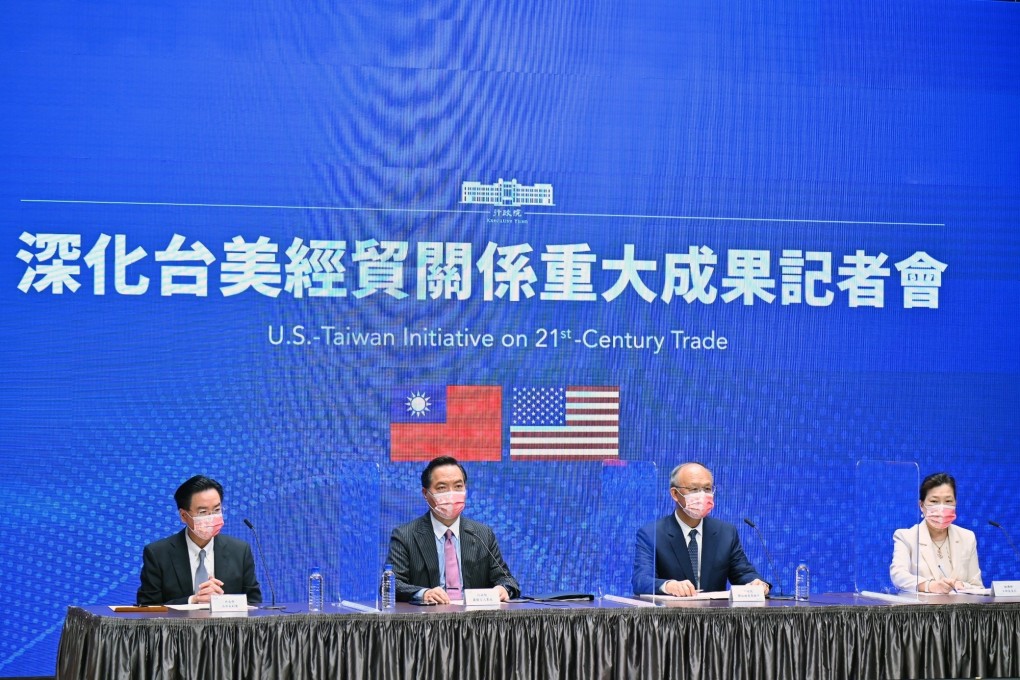Taiwan must consider ‘very influential’ businesses in US trade talks as Washington seeks to ‘cut red tape’
- Taiwan and the US began talks last year over the US-Taiwan Initiative on 21st-Century Trade following deterioration in each party’s ties with mainland China
- On Thursday, the Office of the US Trade Representative proposed a trade deal text to streamline border procedures and ‘cut red tape’ for shipments of goods

Export-reliant Taiwan should consider its “very influential” domestic businesses during its trade talks with the United States, analysts said, as Washington seeks to “cut red tape” for shipments of goods as part of ongoing negotiations.
The Office of the US Trade Representative has proposed the two sides make export shipments easier and faster as part of the US-Taiwan Initiative on 21st-Century Trade, according to a summary of negotiations released on Thursday.
Washington is also seeking rules on regulatory “transparency” and better access to licences for American professional services firms in Taiwan.
You look at Taiwan and it’s in a very weak position and should do whatever the US says, but in Taiwan the businesses are very influential
The US proposals will focus future rounds of dialogue on the small but well-off Taiwanese market, which the American Chamber of Commerce in Taiwan called out last year over “unique” and “strict” industry regulations plus a lack of “integration” with its trade partners.